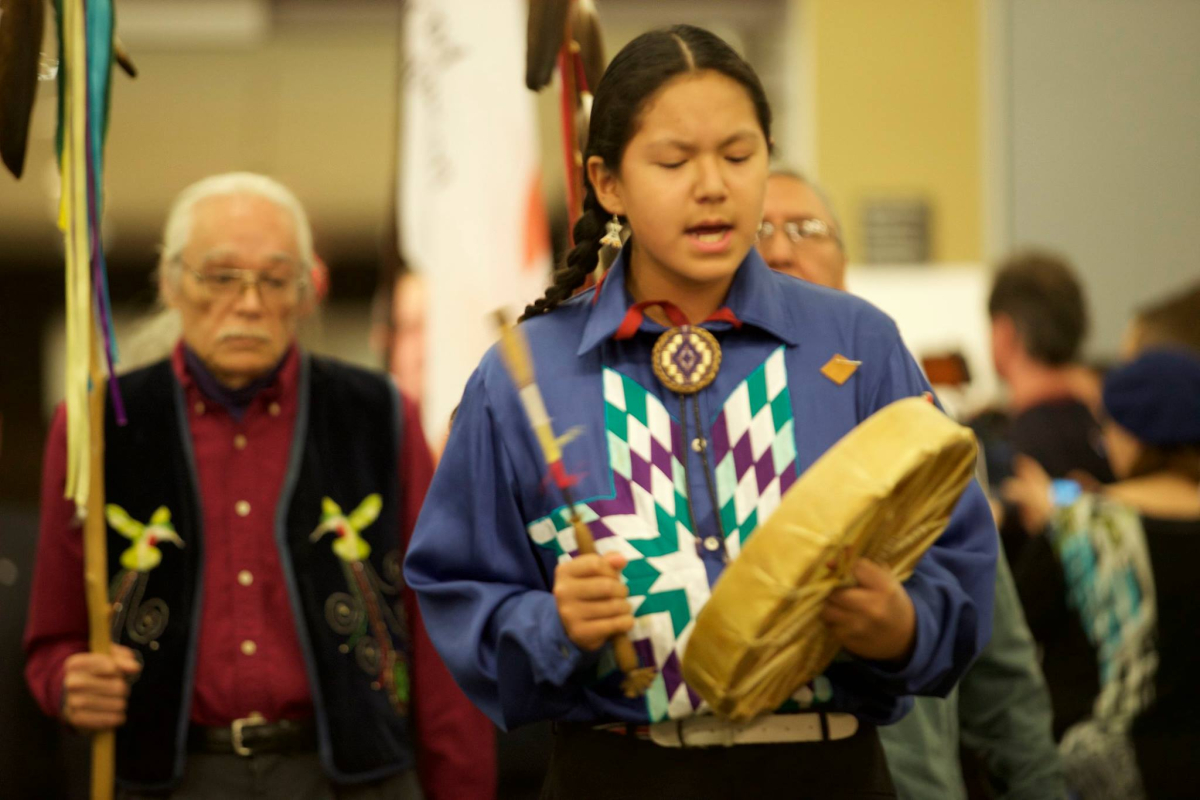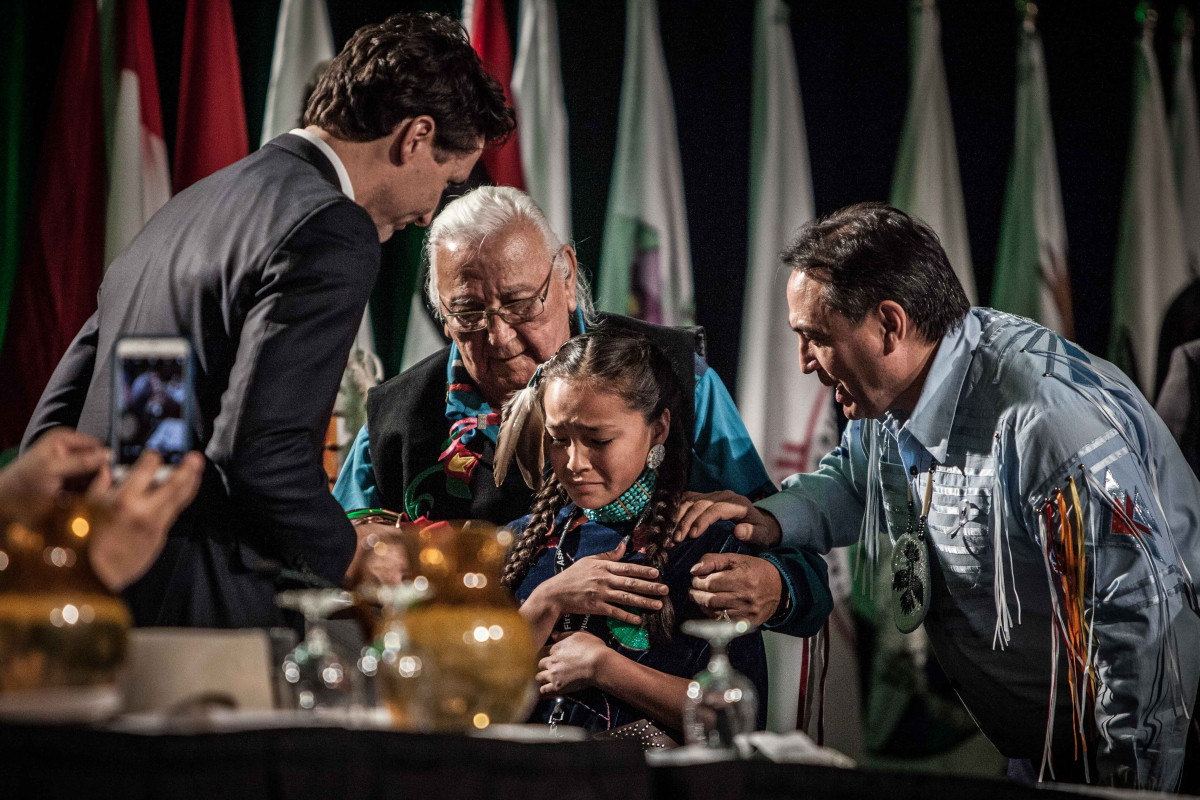Support strong Canadian climate journalism for 2025
A key implication of the power-sharing agreement between the BC NDP and BC Green parties is that consent from First Nations will be taken seriously when their lands or waters could be affected by natural resource and energy projects.
The agreement prominently features their collective support for the 2007 UN Declaration on the Rights of Indigenous Peoples and the Supreme Court of Canada’s 2014 landmark Tsilhqot’in decision. That decision, in case you missed it, established that in the absence of a treaty, Indigenous peoples' rights apply not just to densely-inhabited areas but to the full extent of their ancestral territory, and outlined the Crown’s obligations for obtaining First Nations’ consent.
In both documents, the right of Indigenous peoples to free, prior and informed consent is central.
Scars from the Harper government
Canada, under former prime minister Stephen Harper, initially opposed the UN Declaration but endorsed it in 2010 with qualification. It was characterized as an “aspirational document” and the government emphasized that it is not a binding agreement. The Harper administration maintained objections to the declaration, including provisions related to free, prior and informed consent “when used as a veto.”
In fact, Harper never intended to take seriously the rights recognized by the UN Declaration and cynically deployed the confusion it had sown over consent-as-veto as the basis for general inaction on the right to consent and Indigenous rights more broadly. An unfortunate legacy of the Harper era is that many public officials and some in the media still conflate Indigenous peoples' right to consent with veto power.
Sadly, the rejection of this fundamental Indigenous right is sustained today, as demonstrated by Prime Minister Justin Trudeau's approval of the Kinder Morgan Trans Mountain expansion pipeline, even though Indigenous consent was not secured.

The difference between veto and consent
Achieving consent may, on the surface, appear synonymous with granting a party veto power. But there's a difference.
A veto is a singular act in which one party unilaterally rejects a project or policy, and it results from an adversarial relationship. Consent, on the other hand, is achieved when legitimate authorities mutually agree on terms of approval, after having engaged in a process of informed and non-coercive consultation.
Securing consent entails the early and sustained participation of Indigenous peoples who could be affected by a proposed project or policy, and also obtaining their agreement in shared decision-making authority. This can avert the antagonism that frequently exists between the Canadian state and Indigenous groups, thereby promoting the reconciliation to which Canada aspires.
Why might we think of withheld consent on a project by Indigenous peoples as more of a veto than, for example, a person’s refusal to grant another permission to build on their private property? Or a person declining a sexual advance?
We would never describe those circumstances as a veto. In these instances, we talk of a person or company obtaining “approval” – which conveys a perception of legitimacy – as opposed to the view that an obstinate “veto” over policy decisions is wielded by an authority deemed less legitimate.
Under Canada’s federal system, neither the federal nor provincial governments wield absolute power. The two levels of government may have varying interests and attitudes toward a particular project, and rejection by one or the other may prevent a project’s advance. For example, the federal government recently rejected Enbridge’s Northern Gateway pipeline proposal, even though the province of Alberta sought the project’s approval. Nobody called that a veto and neither should we when Indigenous governments withhold consent.
The Supreme Court’s Tsilhqot’in ruling means that Canada can no longer unilaterally make decisions about unceded Indigenous land. This is especially true in B.C. where very few treaties exist.

Colonial assumptions still guide our thinking
The right to self-determination, recognized by the UN Declaration, involves not only the right to give consent but also to withhold it. Real reconciliation would mean that Indigenous peoples participate in the design of policies and projects that impact them, and would go well beyond Canada’s practice of “consulting,” and sometimes accommodating, Indigenous peoples on projects that have been developed without them.
Conflating consent and veto in political debates over Indigenous rights reveals that colonial assumptions still guide our thinking.
Regrettably, Canada under Justin Trudeau continues to disregard the right to free, prior and informed consent, clinging to an antagonistic system of decision-making that frequently leaves Indigenous peoples with little recourse except to file lawsuits. In B.C. they have filed a seemingly endless series of legal challenges to block projects like the Kinder Morgan pipeline, Site C dam and development of the liquefied natural gas industry.
If handled appropriately, the process of achieving consent can prevent many of the lawsuits that challenge projects on Indigenous territory. That said, Canadians need to accept that our domestic and international commitments to Indigenous rights will sometimes mean that projects and policies will not advance because they have not secured the consent of affected Indigenous communities.
If Canada’s project of reconciliation is to be more than just words, we must accept this possibility.
– Jason Tockman is a postdoctoral researcher at the University of Washington’s Jackson School of International Studies. He holds a PhD in Political Science from the University of British Columbia, and studies Indigenous rights and the implementation of the UN Declaration on the Rights of Indigenous Peoples in the Americas.






Comments